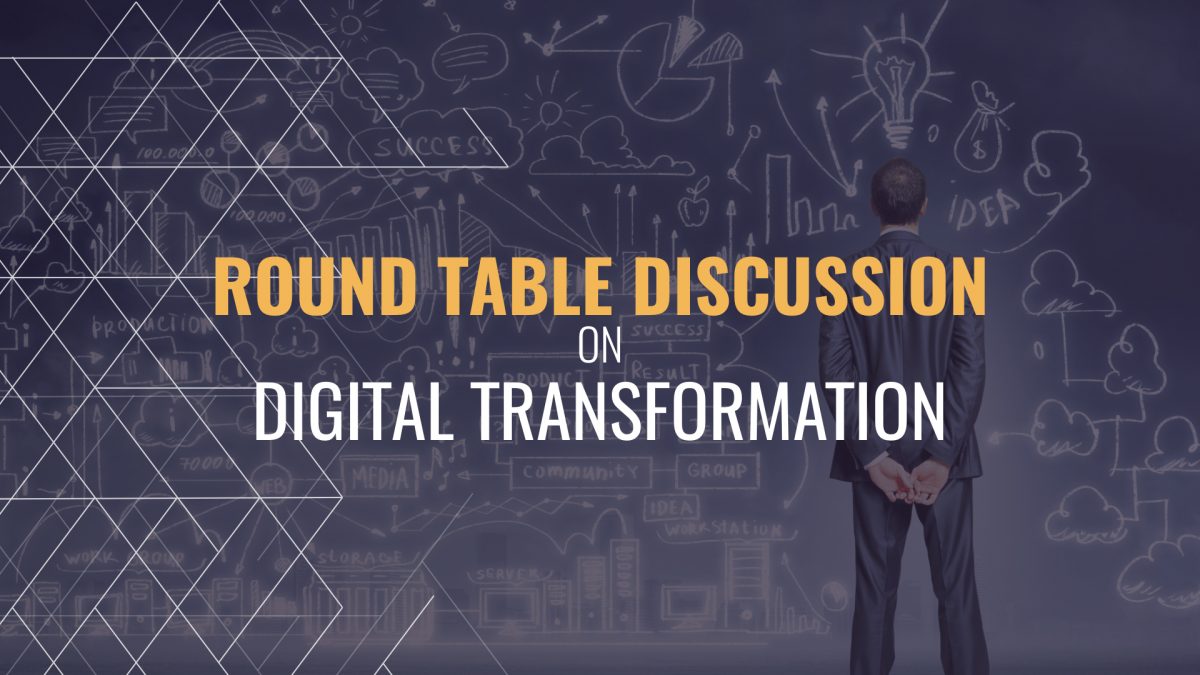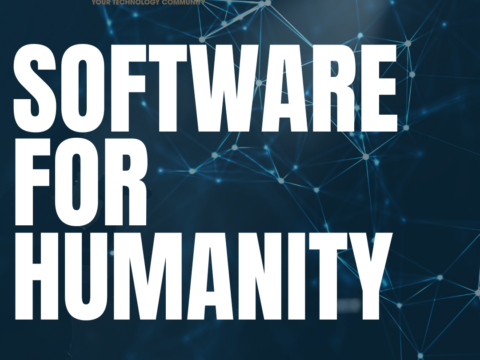Roundtable Discussion: Digital Transformation

Who’s Hiring – 3-24-2020
March 24, 2020
Achieving Continuous Compliance at the Speed of Cloud
March 27, 2020On Tuesday, CMG hosted a virtual roundtable discussion on Digital Transformation during which the participants discussed DX in the time of COVID-19: preparedness, innovation, and investments. Dave Krause, a client partner with Magenic; Seth Amyx, a performance engineering specialist at Nationwide Insurance; and Nabeel Mahmood, an executive strategist with expertise in AI, ML, and RPA; actively participated in the hour-long discussion. The expertise and diverse perspectives on the call made for a lively discussion which is recapped here.
As I define it, digital transformation is the integration of digital technology into all areas of a business resulting in a fundamental change into how businesses operate and how they deliver value to customers beyond that. It’s also a cultural change that requires organizations to continue to challenge the status quo, experiment often, and get comfortable with failure. This sometimes means walking away from long-standing business processes that companies were built upon in favor of relatively new practices that are still being defined. – Nabeel Mahmood
At the start of 2020, much of the conversation on digital transformation was about driving the omnichannel experience and the consumer focus of businesses. How do you think digital transformation goals have shifted in the wake of the coronavirus epidemic?
Nabeel Mahmood:
I believe that the recent coronavirus outbreak has caused something of a catch-22 for businesses when it comes to digital transformation. On one hand, it’s forcing rapid evolution and reinvention of the infrastructure and processes as almost everything shifts online – from food orders to grocery shopping to business meetings to entertainment. On the other hand, it has caused widespread global uncertainty – particularly in terms of the financial markets – and the loss or reduction of thousands upon thousands of jobs. Many firms are being forced to rethink spending that they planned for technology infrastructure upgrades and strategic initiatives.
There is no clear path forward in the short term. In the short term, businesses will be inclined to take whatever course of action keeps their companies afloat, but it might be the time to shift to long-term thinking. The COVID-19 pandemic has vastly accelerated a shift that was already taking place across every sector. And while opinions are still divided on what the lasting impact of this pandemic will be, I believe the consensus is that there will be a lasting impact from the disruption and digitization as consumers become more acquainted and used to availing themselves of digital services and developing new habits.
Does the speed at which many companies have shifted to digital processes and remote work indicate that many were further along in their digital transformations? Do you think that this is superficial with many actually struggling right now or are we seeing real success here?
Dave Krause:
I think it’s been a challenge for many companies. For instance, companies that are not typically work-from-home may have had virtual desktops ready to go but that system is now struggling with bandwidth and capacity issues. Compare this to companies who had already embraced working from home and were much more prepared. Those companies already know how to drive initiatives remotely. They already know how to hold virtual meetings and use collaboration tools because that is already their norm. Those companies will see minimal disruptions to their projects versus companies who have been somewhat old-fashioned in terms of adapting to the work from home trend. Additionally, if a company has had the capabilities, but hasn’t supported remote work even partially, they will fall behind as their workforce struggles to become accustomed to remote work.
Seth Amyx:
To David’s point, Nationwide as a whole has a really good culture. We already had a hybrid remote/on-campus working model so we’re heavy on collaborative tools from the start. So I don’t think that was ever an issue for us. Another thing is that we didn’t just jump right in, we staggered taking it to 25% work-from-home to 50% and so on. It allowed the company to kind of ease into it and get resources where they were needed.
Our agile and development teams and their business partners are working business as usual. We are in a critical freeze, however, meaning that unless you are a critical application, you aren’t going into production unless you have a very good business case of why you need to. It will be that way for at least the next couple of weeks. So obviously there is concern about how you keep those teams engaged and how they are managed.
And also, some of these “non-critical” applications that aren’t customer-facing are very important to that are important to business processes. There is only so much continuous improvement you can do in several weeks without going into production. But we were well prepared and in my role, we haven’t seen much change.
David Krause:
That also speaks to people’s maturity in terms of DevOps, in terms of test, and in terms of go-to-market. If you are truly running agile, there shouldn’t be a major disruption. Those companies that say that they are “agile to QA” and similar are now showing that they have flaws in their processes because they can’t actually release in certain environments. It’ll be interesting to see, after this, what changes we will see companies make to modernize their software delivery.
Seth Amyx:
You can have great practices and systems in place, but it is a big test when you are forced to work from home or teams have staff changes. You can see some teams that have adopted it very well and you still see other teams that need some uplift.
Do you think companies should be investing in their existing [pre-COVID] DX plans or what shifts should they be making?
David Krause:
I think that companies are going to realize that they have to do a different type of investment moving forward. I’m not talking about more CPUs or expanding your flexibility with a cloud and creating VM’s. I’m talking about really looking at your efforts over the last five years to change your culture and be able to deliver leaner minimum viable products and to deliver more meaningful products that users want to use to the marketplace.
A lot of times the IT people want the change and take the blame, but many times it is the business people that are calling the shots and preventing real change from happening in the organization. It’s a tough mountain to climb.
Nabeel Mahmood:
David hit the nail on the head. There is a communications gap between the c-suite and the operations and technology folks in the business units as well. There is good news. Remote working is not the only piece of digital transformation and we will see more changes. I also believe the digital transformation was never meant to be implemented all in one go. It’s good to tackle with a component approach. There are so many different business cases and components to consider that it works well as an interactive process. In part because it impacts, not just systems and technology, but culture and people. The exact timeline is a matter of debate, but it certainly cannot happen overnight.
On top of this, we have to remember that even quick wins and small improvements are still wins and improvements. These changes now can potentially alleviate a difficult situation for the business as well as improving competitiveness in the long run. Additionally, companies that are investing in transformation because of COVID-19 are going to be better prepared for the next time because there will be a COVID-21 and a COVID-25. We’ve had these challenges in the past and have not had to prepare as much, but we are positioning ourselves to be much more predictive and proactive versus being reactive.
A lot of this is revealing digital transformation that was relatively hidden before now, especially in industries such as healthcare and government space. What are your observations there?
Nabeel Mahmood:
I think that companies in those industries get a bad rap for not necessarily being on the cutting edge. But, I know I’ve seen some wins from the government side in regards to digital transformation here. With what is being revealed, I think they’ve been forced to keep it confidential. They’re working with critical data and also have to be aware to not create panic or big reactions. If they had revealed much of what they do now in the beginning, we may have had a very different reaction.
Seth Amyx:
And I think it definitely has shown where they are in their digital transformations and where we may not have seen it before. It does also show the holes and where things are lacking. Then there are people who are working and want to see improvements and are actively working towards them – that’s a digital transformation happening there.
Nabeel Mahmood:
Exactly. Look at telemedicine. We heard so much about it but it wasn’t everywhere and now doctors are talking to patients virtually and saving lives.
The quick adoption of telehealth outside of the traditional infrastructure – from mandated healthcare apps to Skype for instance – has been surprising. Do you think that this is a temporary change or will we see a shift in how solutions are delivered in the future?
Dave Krause:
The question is “why are they doing that?” Is it out of immediate necessity or is there other technology like facial recognition that is being deployed? It could be that in six months we’re all going to get a notice that our data may have been compromised. How is it going to play out?
Nabeel Mahmood:
I believe necessity is driving the change and it requiring continuous education and continuous learning. It’s probably also time for the old guard to let go of things. They’ve managed the economy, the business, and culture in a certain way and we have evolved significantly in the past decade. We are an “information now” society and the user experience is driving the change and it’s happening very quickly. We just need the right people in the right positions to support it. .
In a lot of industries, there are regulatory and compliance issues to complicate the situation. In some cases, we’ve got people in the wrong position, driving standards that impact the simplest job functions. It’s a painful experience. In some cases, they do not understand technology and are not technologists at all. This immediate necessity is going to change the mind of people and bring a lot of new technologies to the forefront.
Dave Krause:
You said you said people want to have information at their fingertips. They expect it. It’s how they operate and how they work in the world. It’s important for companies to recognize this and make sure they are enabling their employees to get the information they need and when they expect it. I’d suggest companies start to date these processes as a part of their digital transformation and make sure that information and modern tools are enabled.
Shifting gears, what are some technologies outside of remote work-related solutions that we can expect to really impact business in the next 3 years?
Nabeel Mahmood:
There are multiple ways to look at it but I believe that 5G is going to be a major disruption. It’s going to change how we do things in the next two to three years once it’s adopted and that’s going to lead into other platforms as well.
There are also RPA and chatbots. Both will become more integral to moving forward within your organization.
Seth Amyx:
Just to take that one level further, within the organization, I think that we will see an increased need for monitoring and monitoring tools on all the new data we are collecting. Having the data is good, but it will be integral for data analysis to move the business forward.
Dave Krause:
Even in the trading industry, we’re seeing monitoring and data forensic tools being deployed to monitor pattern disruptions. They are catching rogue trading in real-time and do real-time analysis.
It’s also now important for the technologist to educate the business side that technology is not as easy as a cloud commercial makes it out to be. It is a good opportunity to bridge the gap between the business and technology sides for the company.
Where do you see AI stepping outside of monitoring and being trusted for the management side of the house? What is the impact on jobs?
Nabeel Mahmood:
It’s not Artificial Intelligence, it’s actionable intelligence. It will actually never overtake the emotional and human intelligence. There’s always going to be human intervention in some way or form or shape.
Seth Amyx:
I think the increasing adoption of AI can be compared to when you adopt lean and agile business processes. Teams were so scared that some stuff was going to be taken away and really it’s more of just a shift. Something that you did manually has been eliminated with AI but now you have more time to add value in other ways.
Dave Krause:
When I am speaking with Executives and VPs, I always guide on the 80/20 rule. Eighty percent of your business is normally done through 20% of your transaction set right here. So meaning if you have a hundred different transactions 80% of your business is normally done with 20% of those transactions your core business value. You need to support your core business first and then work to manage those exceptions.
How is the next generation of the workforce, culture, and diversity causing shifts in your organization?
David Krause:
I’ve been in IT my whole life and the biggest influence has been my work with international cultures. It’s always been diverse in my work but working internationally has had a great impact on me.
Nabeel Mahmood:
I believe that as we all move forward, the cream is going to rise to the top. People that are talented people that bring value are going to rise up and nobody’s going to be able to stop them. Those people that are intelligent and have a skill set are going to rise and those that have been hiding are going to be revealed. There are also some very positive mandates for diversity in leadership happening that are going to promote more positive change as well.
Seth Amyx:
I have the pleasure of working on a team that’s very culturally diverse and it’s very very much enjoyable. We’ve been able to maintain almost the entire team for about 3 years so we know each other pretty well. It’s always great hearing how different groups of people operate and I think it’s just beneficial having more information is better than less.





